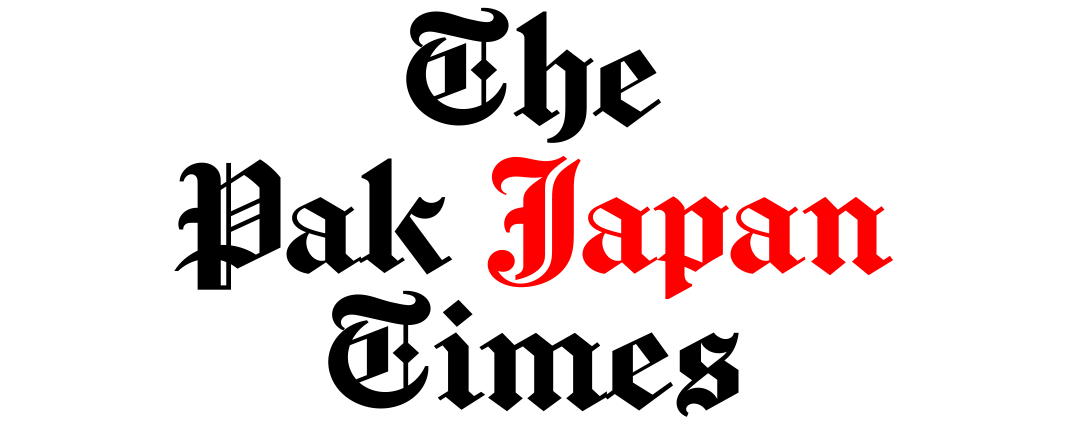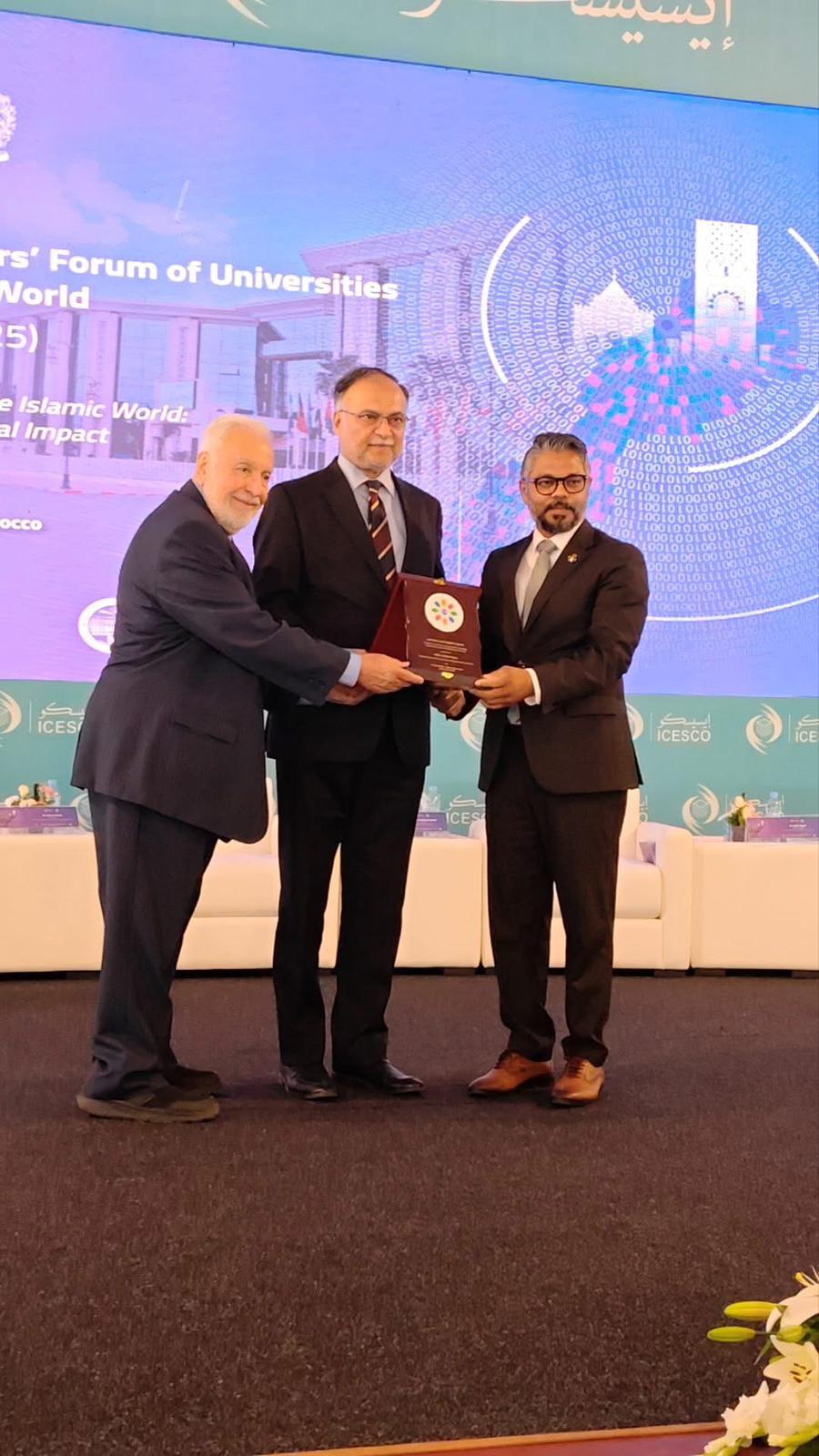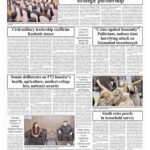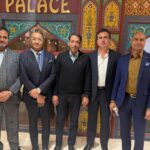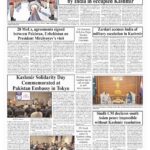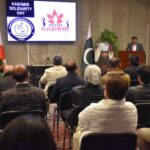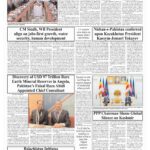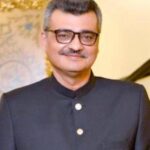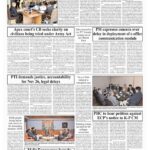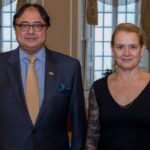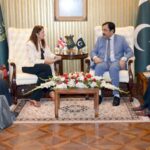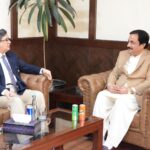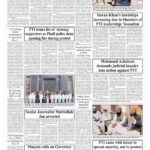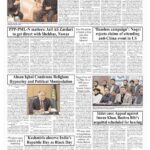By Professor Ahsan Iqbal
Federal Minister for Planning & Development
Youth wait for their turn for a Capital Development Authority (CDA) job entry test in Islamabad. — AFP/File
Youth wait for their turn for a Capital Development Authority (CDA) job entry test in Islamabad. — AFP/File
In the ancient city of Rabat, where the intellectual heritage of the Islamic world resonates in historic libraries and madrasas, the Vice Chancellors’ Forum of Universities in the Islamic World, was convened to address a pivotal question: Can the Islamic world reclaim its historic leadership in knowledge, innovation, and civilization building in the 21st century?
As a public servant who has championed knowledge-based development for over three decades, I believe the answer is a resounding yes, but demands urgency, unity and a bold reimagining of higher education.
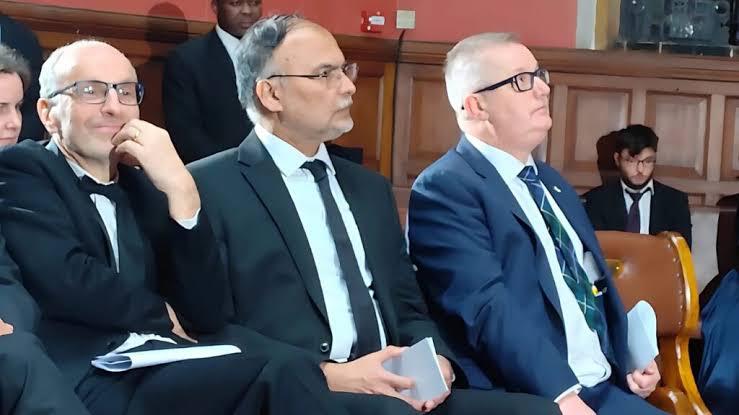
Our journey begins with the purpose rooted in our faith. The Quran’s first revelation, “Iqra” (Read), was not merely a call to literacy but a divine mandate to observe, question, reflect, and understand. This call to read was, in fact, a divine call to think, to question, and to explore the universe. The early Muslim scholars saw no contradiction between faith and science. For them, to observe the natural world was to deepen one’s faith in the Creator.
The Quran challenges humanity with questions that awaken the intellect: “Do they not see how vapors rise, and how rain gives life to barren land?” “Do they not reflect on the alternation of night and day?” (Surah Aal-Imran, 3:190–191). This invitation to inquiry fueled the Islamic Golden Age from the 8th to 13th centuries, when scholars like Ibn Sina revolutionised medicine, Al-Khwarizmi laid the foundations of algebra, Ibn al-Haytham pioneered optics, and Al-Biruni advanced astronomy and anthropology. In cities like Cordoba, Baghdad, Bukhara, and Cairo, libraries flourished, and knowledge was a sacred duty. Muslims, Christians, and Jews collaborated to translate, preserve and expand human understanding, seeding the European Renaissance.
Today, we must confront a sobering question: Where is that spirit of inquiry? The Islamic Ummah, over two billion strong and nearly a quarter of humanity, contributes less than 6.0 per cent to global research output, holds a negligible share of patents, and invests, on average, less than one per cent of GDP in research and development. Meanwhile, technologies shaping global power – artificial intelligence (AI), quantum computing, biotechnology and space exploration – are dominated by nations that prioritise education as their first line of national security. This is our crisis: a civilisation that once taught the world how to think now risks being left behind in an era demanding intellectual awakening.
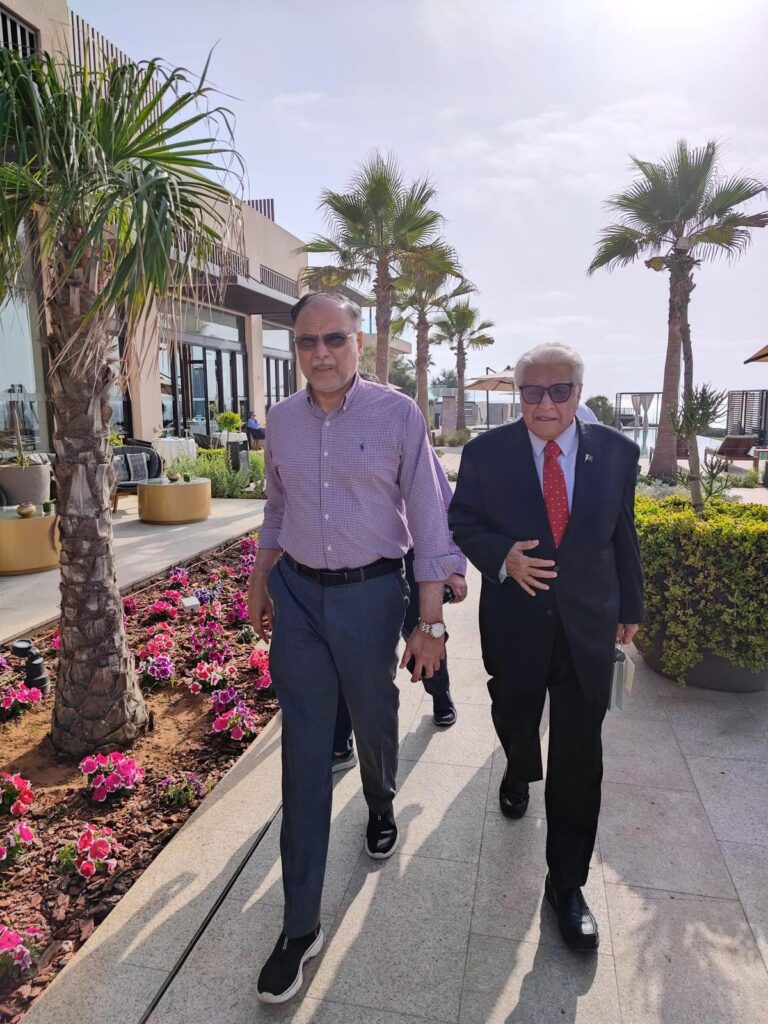
The forces defining this century – AI, climate change, digital disruption and biotechnology – move at an unrelenting pace. If we do not lead, we will be shaped by others. History teaches that nations neglecting intellectual capital depend on those investing in it. The ongoing genocide in Gaza, recent aggression in regions like Iran and persistent injustices across our world underscore a painful truth: compassion and courage alone are insufficient without the technological and intellectual strength to command global influence. The true battlefield today is intellectual, fought not with tanks but with teachers, researchers, coders and inventors.
Pakistan’s journey reflects this reality. In 1998, under Vision 2010, we launched thousands of overseas PhD scholarships to build a knowledge foundation, producing over 10,000 scholars from top global and national universities. Under Vision 2025, we expanded public universities from 99 to 154 and boosted higher education enrollment by 47 per cent. We established National Centres of Excellence in AI, robotics, cybersecurity, big data, genomics and space technologies.
We are investing in quantum computing, nanotechnology, advanced manufacturing and climate technologies to prepare for the Fourth and Fifth Industrial Revolutions. Quantum Valley Pakistan, a deep-tech innovation zone modelled on Silicon Valley, integrates academia, industry, venture capital and policy to transform research into economic value.
Expansion without quality is a hollow pursuit. Pakistan has adopted a seven-pillar framework to ensure higher education is aligned with new challenges and drives speedy national progress: Academic Excellence; Research and Innovation; Academia-Industry Linkages; Technology Infrastructure; Corporate Governance; Community Engagement; and Graduate Employability.
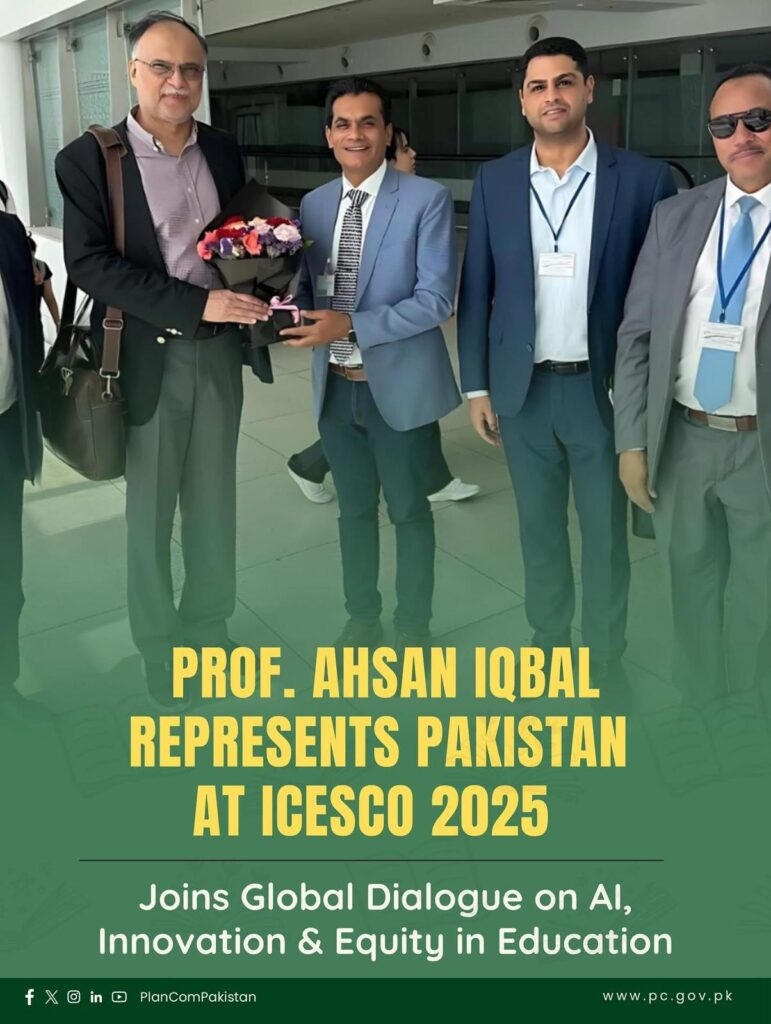
Innovation is the defining force of our era, reshaping industries, geopolitics, and national destinies. It is no longer oil, territory, or military might, but the ability to innovate that determines survival and success. A 2023 World Intellectual Property Organization report highlighted that over 80 per cent of global patents originate from just five countries, none of which are in the Islamic world.
Our universities must embed problem-solving and entrepreneurship in curricula, foster multidisciplinary research tied to real-world challenges, and enable students to develop startups, prototypes, and policy solutions during their studies. Faculty-industry collaboration must transform research into market-ready innovations.
The rise of AI emphasises the urgency. By 2030, AI is projected to contribute $15.7 trillion to the global economy, according to PwC. Yet, science without ethics is perilous. Our universities must ensure this scientific renaissance is guided by the moral compass of our faith – rooted in justice, dignity, and sustainability.
Pakistan’s experience offers lessons for the Islamic world. Our investment in scholarships and infrastructure has built capacity, but challenges persist. Bureaucratic inertia, inconsistent funding, and resistance to curriculum reform can stifle progress. Aligning education with industry needs requires sustained effort, as does fostering a culture of inquiry. Yet, our progress – doubling university enrollment and establishing innovation hubs – shows what is possible with political will. For instance, our National Centre for Artificial Intelligence has developed AI-driven solutions for agriculture, improving crop yields by 20 per cent in pilot projects.
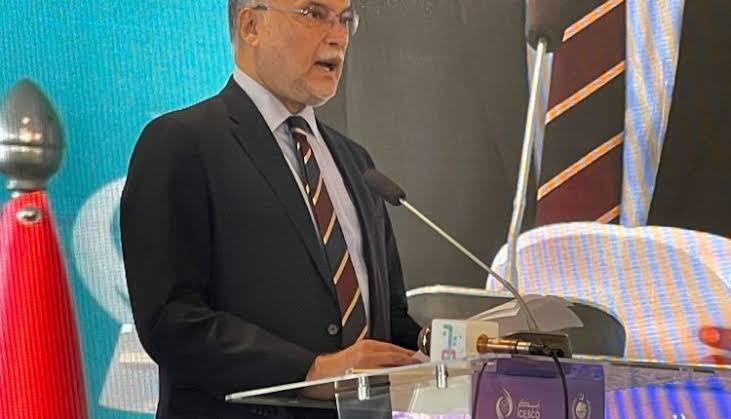
Globally, the Islamic world faces additional hurdles: brain drain, with 15 per cent of skilled professionals leaving annually; underfunded institutions; and political instability. These are not insurmountable but require collective resolve. The Organization of Islamic Cooperation (OIC) reports that only 10 of its 57 member states allocate more than one per cent of GDP to research. By pooling resources, sharing expertise and leveraging digital platforms, we can overcome fragmentation and build a knowledge ecosystem rivaling global leaders like the US or China.
No single nation can succeed in isolation. The Islamic world must forge a shared intellectual infrastructure. I propose the following under the OIC’s leadership. One, OIC Knowledge Alliance of Universities (OIC): Facilitating joint degrees, dual PhD programs, shared research facilities, and an annual Islamic World Innovation Summit rotating across member states.
Two, Islamic Grand Challenges Collaborative Fund (IGCCF): Offering competitive grants for cross-border research on pressing issues like water scarcity, renewable energy, health, and food security.
Digital Education Transformation Initiative: Developing multilingual Massive Open Online Courses (MOOCs), open-access digital libraries, and cloud resource-sharing infrastructure.
OIC Centres of Excellence: Distributing thematic leadership in AI, cybersecurity, biotechnology, space sciences, climate technologies, conflict studies and Islamic finance across member states.
Youth Research Mobility & Leadership Programme: Establishing vice chancellors’ mentorship, an OIC Young Scholars Council, and graduate fellowships for collaborative research.
These initiatives would institutionalise educational solidarity, transforming aspiration into action. For example, a collaborative AI research hub could position the Islamic world as a leader in ethical AI, addressing global challenges like climate adaptation or healthcare disparities.
The Islamic world, heirs to a civilisation that once illuminated humanity, must reclaim the spirit of ‘Iqra’. This is not nostalgia but a call to bold action. We stand at a crossroads. The technologies shaping the future demand that we act now. The Islamic world can restore its legacy as a powerhouse of knowledge by reimagining higher education as a collaborative, innovative and ethically grounded enterprise. Let us transform our universities into engines of progress, driven by inquiry, united in purpose and inspired by faith to contribute to humanity’s well-being.
As the 21st century redefines what it means to be powerful, we must reclaim our role as leaders in thought, not just in population. Let us heed the voice of the philosopher-poet Muhammad Iqbal, who wrote: “A new world is born of new ideas/ For bricks and mortar do not build civilisations, ideas do.”
The future of the Islamic world and our place in global civilisation will be determined not by what we remember, but by what we imagine and build together.
